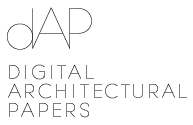CLOSE-UPS
by Krunoslav Ivanišin
Coincidentally, two dynamically sublime views through window frames of machines in motion mark the beginnings of two “architectural” narratives that have been shaping Middle- Eastern landscapes ever since. In the initial chapter of his 1969’s “Architecture for the Poor”, Hassan Fathy gave...
Read more
A VIEW FROM ABOVE
by Krunoslav Ivanišin
In Three Stories on Painting and Time Orhan Pamuk traces the distinctive qualities of the Ottoman miniature back to a very remarkable ancestral event: the Mongolian siege of Baghdad of 1258. Architecturally structured way of “depiction of the world from an elevated Godlike position attained...
Read more
THE WILL FOR CHANGE
Interview with Reza Daneshmir and Catherine Spiridonoff
There is a certain romantic aspect to the Middle East, very hard to avoid when we look at it from a European (“Western”) perspective: mythical place from books where anything can happen. How does the contemporary Middle East look like when seen from inside, related to architectural project...
Read more
THE MOUNTAIN, THE RIVER AND THE HIGHWAY
by Marianne Baumgartner, "On the Road" Video by Krunoslav Ivanisin
And Moses went up from the plains of Moab to Mount Nebo, to the top of Pisgah, which is opposite Jericho. And The Lord showed him all the land,...
Read more
POSITIONS 1
Interview with Yaşar Adanali, George Arbid, Rami Daher, and Wael Samhouri
DEFINITION
Yaşar Adanali: Defining the Middle East, its boundaries, different meanings, layers is by itself a very difficult, value-bounded and mainly a political challenge. Especially, when one looks at the region from the perspective of its “western” neighbors, many...
Read more
THE BEST ART SOMETIMES COMES FROM RESTRICTIONS
Interview with Mohammad Al Asad and Sahel Al Hiyari
Public space in a Middle Eastern city
MOHAMMAD AL ASAD: this is a very difficult subject to address because there is always the talk of the fact that there are no true public spaces in this part of the world, but then you have Cairo and “Tahrir square” which shows how a public space...
Read more
POSITIONS 2
Interview with Bechir Kenzari, Khaled Adham and Khaled Al Sallal
Why are questions of identity and authenticity so central to the discourse on architecture in the Arab world?
Bechir Kenzari : As far as I am concerned, I think it is a wrong question, it is a false problem. In time of crises the issue of identity becomes a refuge. Eventually it...
Read more
“HOW ONE CAN BUILD A MOUNTAIN ...
by Krunoslav Ivanisin
… and then not let people climb on top of this mountain?” I was asked this question by one student during the seminar trip to Galicia in March 2009. More precisely, during our visit to the Cidade da Cultura; the pharaonic-sized project that has been under construction since 2001, upon Peter...
Read more
TRADITIONS
Interview with Ulrich Bellwald
There is a certain romantic aspect to the Middle East, very hard to avoid when we look at it from a European perspective: a mythical storybook place where anything can happen. How does the contemporary Middle East look from the inside, in terms of architecture?
After having lived for such...
Read more
RECOVERING THE MATERIALITY OF THE PHYSICAL ENVIRONMENT
Interview with Richard Sennet
Purely manual, machine- aided, or performed entirely by the machine, mechanical work is a spatial experience. This basic truth from the high school’s mechanics applies in architectural and urban space too. From the beginning of history, working conditions have been shaping human settlements, in...
Read more
THERE IS A COMBAT IN EVERY CONTEXT
Interview with Bernard Khoury
And when we move from these private projects with a certain public purpose to the more “normal” projects like the residential blocks with very neutral, generic names, such as #183, IB3, #732, #893 etc? Do these projects for everyday purposes reflect the same experimental origin...
Read more
Interior landscape
Student: Nina Ozgur
This project is situated outside the structure of the village, just by the limit of the forest on the dark side of the Alpine valley which makes its major reference. Alienated from the artificial elements of the surrounding, it grows organically from nature, corresponding to its daily and yearly...
Read more

